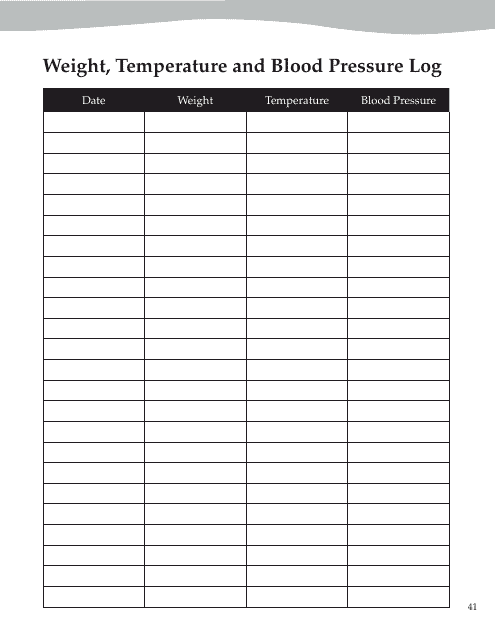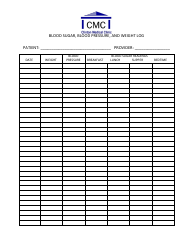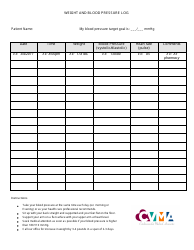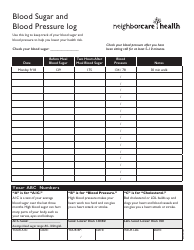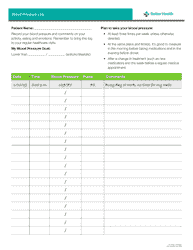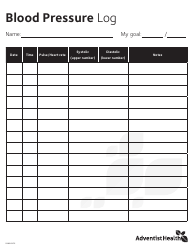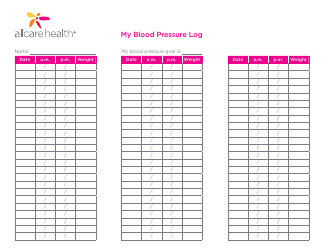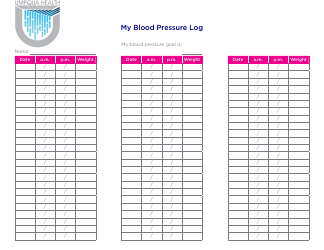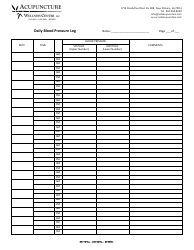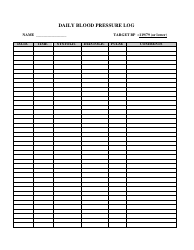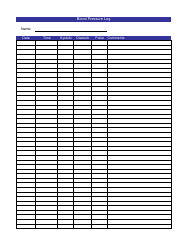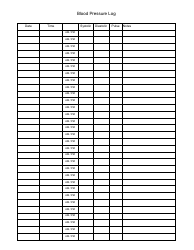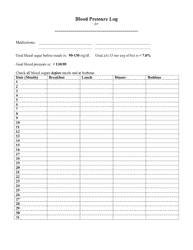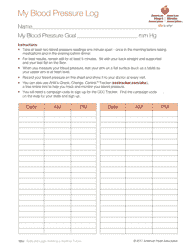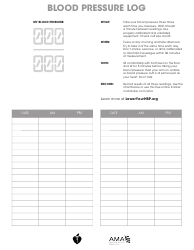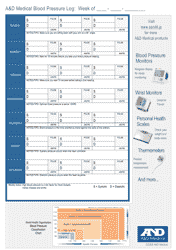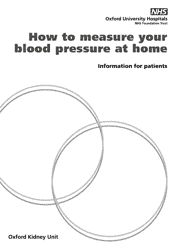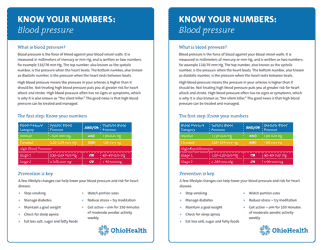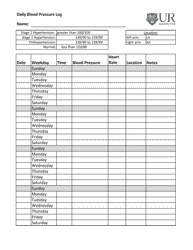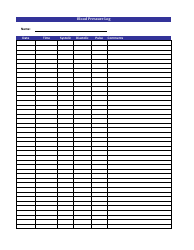Weight, Temperature and Blood Pressure Log
A Weight, Temperature, and Blood Pressure Log is typically used for tracking and monitoring an individual's health. The weight log helps in monitoring one's weight loss or gain over time, ensuring he/she maintains a healthy BMI (Body Mass Index). The temperature log is critical in identifying fever or changes in normal body temperature which may indicate potential illness. The blood pressure log is essential especially for those with hypertension or heart-related issues, as regular monitoring can prevent serious complications. The data gathered from these logs can be shared with healthcare providers to get a comprehensive picture of a person's health status, helping in early diagnosis and effective treatment planning.
The Weight, Temperature, and Blood Pressure Log is often filed by individuals who are monitoring their health for various reasons. This could include fitness enthusiasts, patients with chronic conditions such as hypertension or diabetes, and individuals undergoing medical treatment or in clinical trials. In professional healthcare settings, the log could be filled by healthcare professionals like nurses, doctors, or medical assistants responsible for patient care. Additionally, caregivers may fill out these logs for those under their care, such as elderly individuals or people with disabilities. Remember, it's always important to consult with a healthcare professional before starting any new health monitoring routines.
FAQ
Q: What is a weight, temperature, and blood pressure log?
A: A weight, temperature, and blood pressure log is a record where you track your body weight, temperature, and blood pressure readings regularly. It can provide valuable information about your health and is often used by doctors to monitor patients with relevant health conditions.
Q: Why is it important to track weight, temperature, and blood pressure?
A: Tracking weight, temperature, and blood pressure can help to identify any significant changes that could indicate an underlying health condition. It is also useful in monitoring the progress and effectiveness of a diet, exercise routine, or medication.
Q: How often should I log my weight, temperature, and blood pressure?
A: The frequency of logging weight, temperature, and blood pressure can vary depending on individual health needs. Some may need to track these daily, while others might need to do this weekly or monthly. Always consult with a healthcare provider for personalized advice.
Q: Can I track my weight, temperature, and blood pressure at home?
A: Yes, with the right tools such as a scale, a thermometer, and a home blood pressure monitor, you can accurately track your weight, temperature, and blood pressure at home.
Q: What is the normal range for body temperature?
A: In general, the normal body temperature for a healthy adult is around 98.6°F (37°C). However, it can range from 97°F (36.1°C) to 99°F (37.2°C), varying from person to person, time of the day and part of the body where the temperature is measured.
Q: What is the normal range for blood pressure?
A: The ideal blood pressure is generally considered to be between 90/60mmHg and 120/80mmHg. High blood pressure is considered to be 140/90mmHg or higher. Low blood pressure is considered to be 90/60mmHg or lower. Always consult with a healthcare provider for your personal health queries.
Q: What is the normal weight range?
A: Normal weight range varies widely depending on factors such as height, age, gender, and body composition. Body Mass Index (BMI) is often used, a value of 18.5 - 24.9 is considered normal for adults. However, this is only a rough estimate and does not take into consideration muscle mass or distribution of fat.
